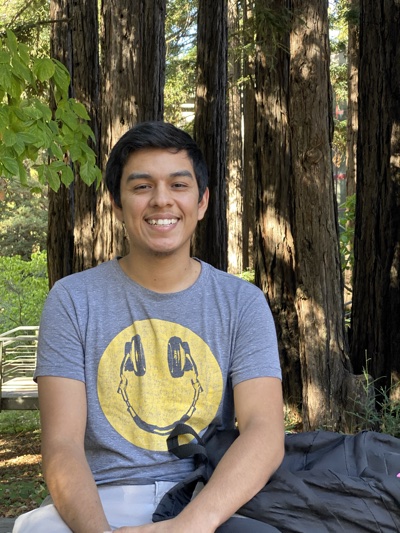Campus News
Computer engineering graduate student focused on intersection of energy, computer security
For Allen Aboytes, one of the best things about working in the field of computer engineering is the cooperation with others to achieve a goal.

This article is one in a series of stories that spotlight incoming graduate students and the obstacles they’ve overcome to pursue an advanced degree.
For Allen Aboytes, one of the best things about working in the field of computer engineering is the cooperation with others to achieve a goal.
He also loves the freedom. “There is a lot of freedom of thought when you’re designing something for the computer,” he said.
The 22-year-old, who grew up in Exeter near Visalia, got his bachelor’s degree in computer engineering from UC Santa Cruz and is staying to pursue his PhD to further his interest in the intersection of energy consumption and computer security. He hopes to do research that will help making large computing systems more energy efficient and secure.
He was very curious at a young age about how computers worked. As he got older and understood them, he grew to love the environment of working on projects and programming.
Though his parents didn’t attend college, Aboytes always knew he wanted to get a university education.
“I felt my high school education didn’t expose me enough to things that interested me,” he said.
It was challenging to navigate the application process because no one in his family knew how to give him advice. His high school counselors helped but he didn’t really know what he was getting into and how rigorous and fast-paced his undergraduate classes would be.
The key step to him considering graduate school was his involvement in the STEM Diversity Programs, which helps connect students to research programs nationwide. He appreciated being accepted with UC Leads, a program designed to prepare promising students for advanced education in science, technology, engineering and math. According to its website, the program is for “students who have experienced situations or conditions that have adversely impacted their advancement in their field of study.”
“When I was applying to grad school, it was much easier,” Aboytes said. “I had a network of support through STEM Diversity and my research mentors throughout the summers.”
He is glad to stay at Santa Cruz where he has made many good friends. When he is not studying, he enjoys visiting the beach, soccer and taking relaxing walks.
After earning his doctoral degree, Aboytes would love to work as a researcher at Sandia National Laboratories in Livermore.